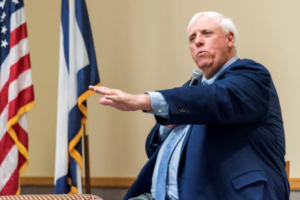Can we talk? We need to stop wasting time and come up with a way to drastically reduce greenhouse gas emissions – now. The recent U.N. report on climate change should scare us into action if nothing else has. Earth’s surface temperatures are virtually certain to rise at accelerating rates between now and 2050, with many serious heat-related consequences, including the disruption of agriculture, wildfires and sea level rise. These will threaten world economic and political stability. This is no hoax. Existential threat would be a better term.
Many of the best minds today believe that the solution lies in putting the right price on the production of carbon-based fuels. Carbon producers like the coal industry create “externalities” – costs that are not part of the price of the coal paid by consumers. Chief among these are the environmental effects of the greenhouse gasses emitted when coal is burned. These costs are foisted onto the public in general.
Finding the right higher price for carbon would make carbon-based fuels less attractive than cleaner sources of energy, such as wind and solar. The right price for carbon would also encourage the development of energy efficient machinery and processes. Individual consumers would make better energy choices.
For those who believe the conservative ideology that free markets can solve all of our problems, here is a wake up call. Free markets have totally failed us in pricing carbon. This is because neither the seller nor the buyer of carbon has an incentive to take externalities into account in the price. Nearly everyone outside the Trump Administration – liberals and conservatives alike – believe that government must intervene. The question is how. There are two candidates for the job.
Cap and Trade
One system, called cap and trade, is currently in use in a group of New England states and California. Government’s role in a cap and trade system is to determine how much total carbon it will permit to be dumped into the atmosphere each year. Government also sells permits to emitters up to the carbon limit and then supervises a secondary market.
Imagine that government decides it will tolerate 5 billion tons of carbon dioxide in year one. It divides this amount into 1,000,000 permits worth 5,000 tons each. The permits could be auctioned, generating revenue. Some carbon emitters might be priced out of an auction, so they could go onto the secondary market to purchase pollution rights from emitters who, through technological improvements, do not need the right to emit all 5,000 tons authorized by their permit.
In year two the overall amount government will tolerate might be reduced to 4.5 million tons. Each of the 1,000,000 permits in year two would authorize 4,500 tons, less pollution than the year before. The price of these would be much higher than the year before at auction and also on the secondary market. The financial pressure on emitters to find ways to reduce their own carbon emissions would be intense. The carbon limit would be steadily reduced year to year until the goal is met.
The criticisms of cap and trade are several. First, emitters chafe at the government setting overall emission limits and call this “command and control,” a buzz-phrase for top down regulation. Actually these limits would be politically negotiated and might not be set low enough to avoid climate disaster. Second, if the overall limits are too low some emitters would be forced out of business, harming the economy. Third, and most important, cap and trade does not involve a mechanism to soften the impact of higher energy prices on consumers. While environmentalists will favor the certainty that emissions would be reduced at predictable rate down to the level that will avoid climate disaster, this system would be subject to intense political pressure from emitters and consumers and would be politically unstable.
A Carbon Tax
The other method for solving the problem is a carbon tax. Under this method, government would decide the appropriate price for discouraging carbon emissions and then impose an escalating tax until that price is reached. This seems to be as much “command and control” as setting the carbon limit in a cap and trade system, but surprisingly conservatives seem to like the carbon tax better.
Voters in Washington state had the opportunity on November 6 to impose a “pollution fee” on emitters in that state. This fee would have operated exactly like a carbon tax. It would have been the first such tax to be adopted by ballot referendum anywhere. Unfortunately voters turned down this measure 56% to 44% in what is now the typical divergence between rural and urban voters.
The Washington proposal was to impose a fee on large emitters, beginning at $15 per metric ton of carbon content and escalating $2 each year until it reached $55 per ton. For comparison, Sweden has the highest carbon tax in the world at $140 per ton. The Washington fee would have applied to fossil fuels sold or used within the state and electricity generated within or imported for consumption within the state.
The measure was expected to generate $2.2 billion in the first five years, which would have been directed to a trust fund. As a fee instead of a tax, the proceeds could not be spent for general governmental purposes. Every cent raised would have gone toward solving climate-related problems, protecting the state’s environment or aiding communities affected by climate change or by the fee itself. This measure was designed to appeal to left-leaning and environmentally concerned voters.
An earlier measure for a carbon fee in Washington also failed because it was opposed by Democrats and labor. It aimed to gain support from more moderate voters by providing for the return of the proceeds from the fee directly to Washington residents, without reserving the money for alternative energy and conservation purposes.
The 2018 ballot initiative was opposed by petroleum producers who argued that the fee would not make a dent in global warming but would damage the state’s economy. They also argued the fee’s impact would be borne by consumers and small business. Commenting on the defeat of this measure, David Roberts, a reporter at Vox, wrote that “it’s difficult to avoid the conclusion that the public is not quite ready for state carbon taxes.”
A Carbon Tax With Public Dividend
So it is with healthy skepticism that I come to the recent proposal made by a group called the Climate Leadership Council (CLC), consisting of the heads of large energy companies and Republican heavy-hitters like James Baker, George Schultz and Janet Yellin. Their plan is called The Carbon Dividend.
This plan involves a tax on carbon-based fuel producers determined by the carbon content of the fuels. For example, coal would be taxed at $96 per ton, natural gas at $2.28 per thousand cubic feet and oil at $18 per barrel. This would work out to an average of $43 per ton of carbon dioxide. It would increase 3 to 5% per year as determined in the legislation.The purpose, as with any carbon tax, is to raise the cost of carbon-based fuels to discourage their use relative to cleaner sources of energy. Exxon-Mobil has pledged $1,000,000 to promote the plan.
The tax would be imposed on energy producers at the point the fuels enter the economy. But the financial impact of the tax would be passed on to consumers, indeed the scheme won’t work unless the costs are passed on because part of the design is to get consumers to economize and make the right energy choices.
Unlike the Washington proposal just defeated, revenues from the tax would be distributed to the public in a carbon dividend paid monthly or quarterly through the Social Security Administration. It would not be devoted to developing alternative energy or softening the blow on communities affected by the tax like Southern West Virginia would be. The CLC estimates the dividend will be as much as $2,000 per year for a family of four and is intended to offset the higher cost of goods caused by the tax.
The CLC further estimates that two-thirds of American families would be financial winners because the increased cost of energy for them would be less than $2,000. This is because only higher income families consume enough to outweigh the dividend. The proposal banks on the carbon dividend becoming as popular as Alaska’s Permanent Fund dividend of $1,000 per year to citizens.
Why, you ask, would big oil companies be interested in a program that reduces the consumption of their products? One answer is that these companies are afraid of future lawsuits blaming them for the effects of climate change. The Carbon Dividend plan would involve some sort of litigation immunity much like the settlement with tobacco companies. Perhaps a more important reason is that the plan involves a grand trade-off whereby current regulations on carbon dioxide emissions like Obama’s Clean Power Plan would be eliminated as “unnecessary.”
Obviously, there are things about the Carbon Dividend plan that will be unpalatable to the environmental community. But keep in mind how quickly we must act. It will be politically necessary to have leading Republicans and much of industry on board if we hope to do anything beyond arguing about what should be done.
I for one am willing to allow conservatives to have their “revenue neutral” solution wherein the government doesn’t get the proceeds from the carbon tax to spend in ways I would like — so long as the plan effectively reduces carbon emissions. On this point the CLC says that the Carbon Dividend plan will reduce emissions by 32% compared to 2005, meaning the U.S. would exceed the upper end of the Paris Accords which called for a reduction of 26-28%.
The real beauty of the Carbon Dividend plan is that it addresses the psychological resistance people have to acting in their own best interest on the climate issue. The threat of global warming lacks immediacy to most people. It is difficult to convince them to endure costs now that will benefit others in fifty years. The dividend provides immediate benefits for behavior that is required to secure a much larger, though long-term benefit. It would make political support for adoption much more likely and help to insulate the plan from amendment through later legislation. Because of this the Carbon Dividend might be the practical and effective solution we are looking for.


